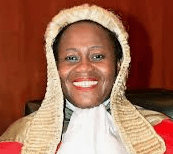It appears that removing the Chief Justice, Justice Gertrude Araba Esaaba Sackey Torkonoo, from office could be President John Mahama’s most remarkable achievement in his second tenure.
With barely fourth months into his second tenure, I had expected President Mahama to spend most of his time, energy and resources in addressing the daunting challenges confronting the “criminally mismanaged economy” he inherited.
Rather, his focus is on arresting and ransacking the homes of former officials of the past government, as though these actions will address the fundamental challenges facing the economy.
Petitions
Two weeks ago, the agenda to remove Justice Torkonoo as Chief Justice made headlines when three petitioners, who are obviously NDC supporters, sent three petitions to President John Mahama to demand the removal of the Chief Justice from office.
In response, President Mahama forwarded the three petitions to the Council of State to commence the consultation process mandated by Article 146 of the 1992 constitution. The process for the removal of the Chief Justice has been outlined in Article 146 of the 1992 Constitution.
It begins with a petition submitted to the President, who “acting in consultation with the Council of State, [shall] appoint a committee consisting of two Justices of the Supreme Court,” per clause 6 of Article 146.
Orchestrated plans
The orchestrated plans to remove the Chief Justice could become a major landmark since the inception of the Fourth Republic in 1992. A similar attempt to remove a Chief Justice from office was in 2009 when Prof. John Evans Atta Mills assumed office.
Like the current petition, Prof Mills came under intense pressure by power brokers in NDC to remove Justice Georgina Wood from office.
Reports indicated that President Mills stood his ground and refused to engage in an unconstitutional act of removing a Chief Justice merely based on the wishes of party power brokers and foot soldiers.
As a Professor of Law, Prof Mills upheld the rule of law and the supremacy of the Constitution over the clarion cries of his party members.
Even though I have not read the content of the current petitions, I wonder whether they will contain any sufficient grounds for the President to oust Justice Torkonoo from office.
During the 2020 election petition, Justice Torkonoo sat on some of the panels and probably gave judgements that did not please the NDC. Similarly, some NPP commentators expressed dissatisfaction with some of her rulings during the hearing.
That is what the rule of law is supposed to be. Obviously, her impartiality during the election petition, which angered both sides of the legal tussle, should have been celebrated as a mark of constitutional and legal maturity.
In a more recent case, some NDC political and legal analysts have expressed anger that Justice Torkonoo chaired a panel that ruled that the Speaker of Parliament, Alban Sumana Bagbin acted unconstitutionally when he ruled that NDC had become the majority and NPP the minority; even though no fresh elections had been held.
It seems her strict interpretation of the law has become the justification to hound her out of the office.
Flimsy excuses
Other NDC commentators have cited some flimsy issues as a pretext to pressurize President Mahama to act unconstitutionally.
For instance, how can anyone interpret Justice Torkonoo’s “facial expression” either in court or out of court to conclude that the Chief Justice hates President Mahama and the NDC? Is facial the expression of the Chief Justice sufficient grounds to call for her dismissal?
In fact, the Chief Justice or any member of the judiciary does not owe allegiance to any government, and that is why our Constitution upholds the independence of the judiciary.
This means that though any President has the power to appoint a Chief Justice, after swearing him or her in, the office holder becomes independent of the appointer.
Therefore, the removal, or even the contemplation of removal of a Chief Justice must rest upon a foundation of cogent, credible and incontrovertible facts. Furthermore, there must have been a demonstrable body of evidence pointing to incompetence, misconduct, or incapacity, evident to any person of average intelligence.
Thus, to succeed in removing a Chief Justice, the grounds must be so definite and undisputable that they withstand the test of reason, not merely the wish of partisan party supporters.
Nevertheless, what is unfolding is history repeating itself, where an incoming NDC government has an agenda to remove a Chief Justice appointed by an outgoing NPP government. Coincidentally, the John Kufour and Akufo-Addo administrations appointed both Georgina Wood and Getrude Torkonoo as Chief Justices.
On the contrary, when the Kufour administration took power in 2001, it did not hound then Justice Abban out of office, though there could have been the desire to do so. The desire to embark on action by no means makes the action legal.
Witch hunting
Reacting to the latest development, some Ghanaians have described the president’s referral of the petition to the Council of State as “witch hunting” which smacks of a bad precedent. Many political and legal analysts say they are yet to find any compelling evidence, or line of argument, that would justify the removal of the Chief Justice from office.
That is why I was shocked to the marrow when I read the Justice Atuguba’s reasons for supporting the removal of Justice Torkonoo. Justice Atuguba, who presided over the famous 2012 election petition, has been quoted in the media as saying, “When the Executive needs a reform, the President is changed.
When the Legislative needed reform, the Speaker was changed. When the Judiciary needs a reform, the Chief Justice needs to be changed.
If Nana Addo Dankwa Akufo-Addo could remove the Electoral Commissioner, the Auditor General and it was good, so should President John Dramani Mahama be able to remove the Chief Justice.
We need serious reforms in every institution, including the NPP. This is one of the reasons Ghanaians want him (Mahama) to be President again.”
Constitutional Supremacy
Our current democracy is hinged on Constitutional supremacy. This means that in all matters involving the state and individuals, the Constitution is the supreme law. In other words, any law or behaviour that is inconsistent with the Constitution is invalid, and obligations imposed by it must be fulfilled.
It is the principle that a country’s constitution is the highest law of the land, and all other laws and actions must conform to it. Perhaps, in fulfillment of the letter and spirit of the 1992 Constitution, Justice Torkonoo requested for copies of the petitions and asked for at least seven days to respond, in line with the requirements of due process and fairness.
Everyone gets the law
Last week, April 7, she submitted her preliminary response to President John Mahama. The submission marks a significant milestone in the unfolding constitutional process that could determine whether a committee will be established to investigate the allegations against the Chief Justice.
What is unclear is that if there is a prima facie case to probe the Chief Justice, who will establish the panel? In my candid opinion if John Mahama succeeds in removing the Chief Justice, he becomes illegitimate because Justice Torkonoo swore him to office.
In the face of intimidation from the executive, the Chief Justice has served notice that she will confront the strategy to remove her with courage and fortitude. In a wildly circulated video on both television and social media, Chief Justice Torkonoo stated that, “In this onslaught, I have realized that what has helped me is the assurance of competence.” According to her, no decision that she made as the Chief Justice and in her capacity as a panel of the Supreme Court has come from anything, but the knowledge of law.
“No wonder how many noises are made, the law is the law, and the only answer one can give to all the hand waving is the legal answer”, she stated. Moreover, she added that “I am quite sure that Ghana is not looking for a Chief Justice who will bend the rule and give them something other than the law. Therefore, here Iam, everyone gets the law”, she concluded.
Battle lines
From the above developments, it appears that the battle lines have been drawn and in the coming weeks and days, Ghana will witness a constitutional death or a constitutional reawakening.
One thing is sure, whether the NDC government succeeds in removing the Chief or not, they would have instilled some fear in the judiciary with the Chief Justice as the sacrificial lamb. Certainly, Ghana has become a frightening environment since January 7, 2025.
This uncontrollable behaviour started with party foot soldiers annexing both private and property, and burning both private and public property in the full glare of security agencies.
The recent strategy of armed security personnel invading and ransacking the homes and property of past government officials has created an atmosphere of insecurity in Ghana. It appears we are in a military era, other than the constitutional rule we all toiled to institutionalize.










